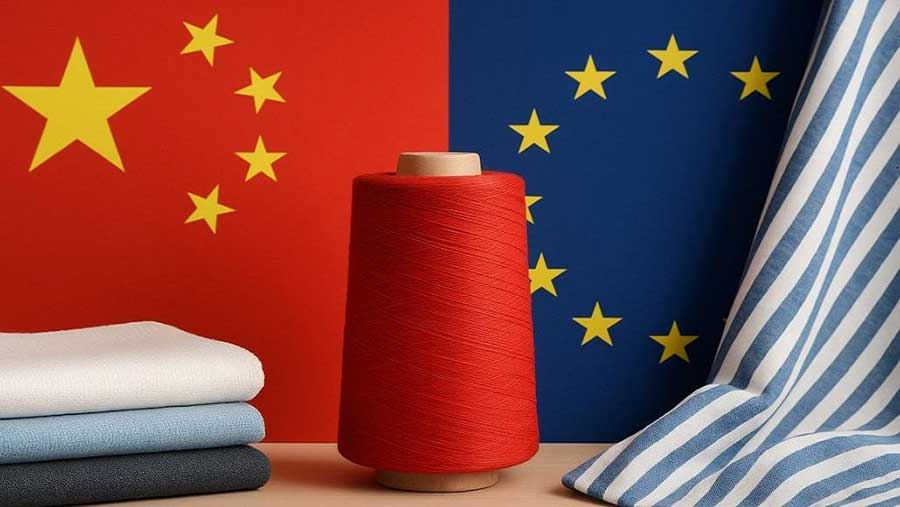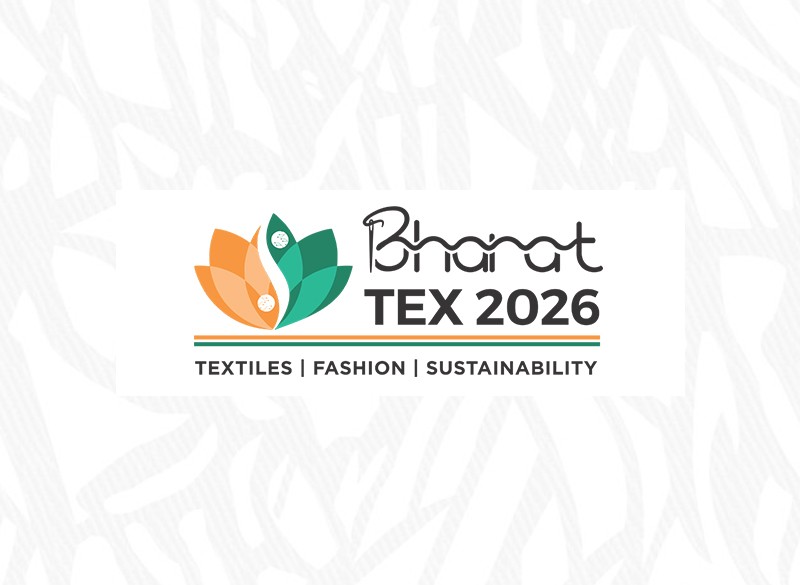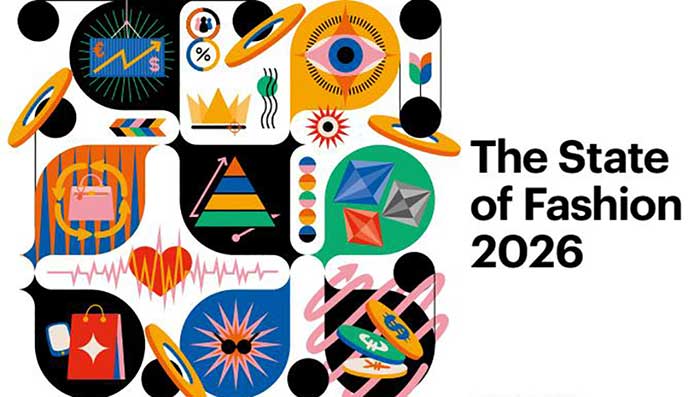FW
The special package India has offered the textile sector hasn’t found too many takers. The software is such that even a slight incompatibility between the credentials of the employee, as provided by the employer, and the employee’s Aadhaar card details would mean rejection. The package for the sector included making EPF optional for employees earning less than Rs 15,000 per month. The idea was to ensure there is more cash in the hands of such workers. However, the proposal needs an amendment to the EPF Act, which has yet to be done.
Trade unions are not happy with the proposal as they feel it would deprive workers of even a modicum of social security. The scheme’s objective was to achieve a cumulative increase of $30 billion in textile and garments exports and investments of Rs 74,000 crores in the sector over three years.
The package includes introduction of fixed-term employment, in line with the seasonal nature of the industry, additional interest subsidy incentives under the technology upgradation fund scheme and an enhanced duty drawback coverage for exports. Policy makers want to extend these provisions to other employment-intensive sectors like leather and footwear.
China’s cotton auctions may shrink the country's stocks to their lowest in six years. The auctions will offer 30,000 tons of cotton a day, although more could be released if demand warrants. The country's overall inventories will fall to 9.3 million tons as by the end of this season, extending further their decline from a high of some 13 million tons reached two years ago.
China’s total stocks are expected to drop further to 7.5 million tons by the close of 2017-18, contrasting with a rise of seven per cent in world inventories, lifted by rising Indian, Pakistani and US production. This would mark the first season since 2011-12 that China’s stocks account for less than half of world inventories. World inventories at the close of next season are set at 83.9 million bales including 39.7 million bales of Chinese supplies.
However, there are doubts whether China will succeed in selling as much cotton from its 2017 auction program as it did from last year’s. The quality of the fiber offered this time may be lower. There is a feeling China sold off the best of its reserves in its 2016 sales. This suggests China’s stockpile may come in the market at a slower pace than last year.
Sourcing event ‘Meet the Manufacturer’ will be held in the UK, May 24 to 25. Over 150 exhibitors will be showcasing the best of British clothing manufacturers, textile mills, leather goods makers, home ware designers and suppliers to the UK apparel and textile industry.
The aim is to help promote UK manufacturing and British-made brands. The event brings together the best of British manufacturers with buyers and designers looking to have their products made in Britain.
This is the fourth year of Meet the Manufacturer. The companies lined up include: Geoff Stocker, producing high end accessories for men; Isabella Queen, a British-based brand offering luxury leather accessories; Wild Things, creating imaginative play clothes for children handmade in the UK; and Unibu, producing unique underwear that’s 100 per cent made in Britain.
This year’s event promises to be bigger and better than ever before and will include a two-day trade show with free drop-in seminars, workshops and live demonstrations with plenty of opportunities for networking. It seeks to reinforce the belief that manufacturing in the UK is thriving, cost-effective and sustainable. The 2016 event attracted over 100 exhibiting companies from across the textile and home ware sectors and from all corners of the British isles.
Trident is best known for its towels, bed linen yarn and paper. In yarn about 32-35 percent is for exports and about 35 per cent is captive and another 30-35 percent in for the domestic market. When it comes to home textiles, that is, towels and bed linen, 90 per cent is exported and 10 per cent goes to the domestic market.
The company has completed its expansion plans recently. Right now yarn is operating at around 92 per cent capacity utilization and paper is operating at around 91 per cent capacity utilization. Towels are operating at a 49 per cent utilisation and bed linen is around 29 per cent utilization.
The company needs about five or six large customers to fill up the entire capacity. Since bed linen is a new business, Trident intends to reach an utilisation of 50 to 60 per cent the next year. During the December quarter Trident had a gross debt of Rs 2,900 crores and a net debt of Rs 2,600 crores. About Rs 800 crores is the short-term and about Rs 2,100 crores is the long-term debt. In this nine month period, Trident repaid around Rs 445 crores, out of which around Rs 165 crores is the pre-payment, which is ahead of schedule.
Applied DNA is an American company that offers molecular tagging and authentication services to apparel brands and retailers seeking to prove the authenticity of their cotton. It is now looking for partners to help eradicate forced labor in Uzbek cotton fields, while facilitating a global collaboration in identifying and highlighting Uzbek cottons that are harvested by modern machinery without forced labor.
While this is a laudable goal by Applied DNA, an alternative for brands and retailers who wish to avoid supply chain risks would be simply not to source from Uzbekistan until the country gives assurances that it has addressed forced and child labor issues. Companies such as Tesco, Puma, Inditex, Marks & Spencer and Adidas are among the more than 100 businesses which have pledged not to source cotton from Uzbekistan.
The United States recognizes Uzbek cotton as a product made with forced labor and has stopped goods made with Uzbek cotton at the border under a law prohibiting import of goods made with forced labor. Applied DNA’s advances in molecular tagging and cotton genotyping can provide technical guidance on cotton produced with forced labor from countries like Uzbekistan and Turkmenistan that can then be used by brands, retailers, supply chain intermediaries and law enforcement to ensure responsible sourcing.
From January to September 2016, Italian clothing exports to Russia grew five per cent. This is good news for Italian companies, in particular the fashion industry, which since 2010 had been struggling to get export orders from a country that was one of their main markets.
During the same period exports from other major EU countries to Russia fell, and especially from the biggest ones, Germany, Spain and France. Italy bucked the trend as it was the only country to grow and remains firmly in first position with 45.9 per cent of the total, followed by Germany, Spain and France.
Further, Italy’s market share increased more than four percentage points, from 40.4 per cent in the same period of 2015, mainly at the expense of Germany, whose market share fell from 26.3 per cent to 24.9 per cent. Russia’s domestic market is of particular interest for Italian companies. Luxury department stores in Russia are stocking Italian fashion brands in a big way.
The Russian clothing market had grown continuously from 2003 to 2008, and later came to a standstill in the wake of the global financial crisis. After a recovery from 2010 to 2013, another collapse followed, due to the international sanctions after Russia’s military intervention in Crimea in 2014 and the subsequent collapse of the ruble and of oil prices.
New York Denim Days will be held from September 30 to October 1, 2017. Aimed at style-setting, indigo-devoted Americans, this will connect denim insiders, designers and brands with denim consumers. The show gets its energy and inspiration from Amsterdam Denim Days.
The schedule will include interactive displays and workshops from brands, designers and denim mills alongside in-store events, a vintage denim market, parties and panels – all geared to give consumers access to their denim heroes and heritage brands and connect brands, designers and members of the denim supply chain to their end customers. Geographically, North Americans have been the largest consumers of denim jeans followed by Western Europe, Japan, and Korea.
The four major players in the US denim industry are VF Corp, Levis Strauss, PVH Corp and Joe’s Jeans. While overall sales declining in the United States, the same does not hold true among millennials, aged 18 to 34, who are spending more on denim — and likely setting the stage for a comeback. US brands are focusing their energy on this younger customer base with a broader mix of products, more of classic styles, fuller cuts, peripheral specialty sizes, plus color options.
Intexpo will be held in Ethiopia on March 6 and 7, 2017. Indian artisans will exhibit handmade textile products including yarn, dress material fabric, suiting, shirting, made-ups and accessories. The event provides an opportunity for importers, buyers and agents in Ethiopia to source their requirements of different Indian textile products. The event also presents an opportunity for building long term and mutually beneficial relationships between Indian exporters and Ethiopian importers.
The first ever traces of Indian handcrafted textiles appeared in the form of cotton saris draped around statuettes, dating back to 3000 BC. Handmade textile products represent around 10 per cent of the Indian textile and garment industry products. These provide a great export opportunity to India since the infrastructure and expertise for manufacturing handmade and blended textiles are presently not available in Ethiopia.
The show is being organized by the Synthetic and Rayon Textiles Export Promotion Council, which plays a crucial role in helping overseas buyers to firm up enduring and profitable business relationships with Indian exporters of synthetic and rayon textile products.
The council will continue to support and guide buyers and importers in Ethiopia to strengthen trade relations between stakeholders in both countries.
India’s cotton exports are likely to decline 20 per cent this year. One reason is China is expected to start sales from its cotton reserves from March and would continue offering 30,000 tons a day until August. China’s total stocks, including those in the private sector, are forecast to reach nine million tons at the end of 2016-17, accounting for 53 per cent of world stocks. This will definitely hit cotton demand from India as Chinese buyers have been active over the last few years.
Exports are not expected to cross 5.5 million bales this year against last year’s 6.9 million bales. Despite a cotton acreage 9.6 per cent less than the previous year, better yields in major cotton growing states have resulted in higher output estimates. India’s cotton production in 2016-17 is estimated to reach 32.51 million bales, up from 30.01 million bales a year ago.
The global market balance is going to remain tight, which could keep prices elevated. If cotton prices decline, imports will go up. But China’s auction may cause prices in the global market to decline. So the result is that Indian exporters will not be able to reap the benefit of high international prices.
Yiwu Tex will take place in China from June 13 to 15, 2017. This is a knitting and hosiery show. The focus will be on healthcare textiles, innovative yarn and its applications.
The show will feature zones on functional knitting machinery, smart apparel machinery and digital printing machinery. Manufacturers can learn how to expedite the smart production transformation, improve products’ functionality and marketing their products in the domestic and overseas markets. Yiwu is a sourcing platform for many enterprises in particular those in the knitting industry.
Exhibits include a wide collection of textile machinery such as knitting machines, braiding machines, dyeing machinery and sewing machines. The knitting and hosiery industry of Yiwu has become world-renowned. For this reason, the Yiwu Tex knitting and hosiery machinery zone will showcase smart knitting systems and innovative knitting technology.
The Yiwu hosiery industry accounts for 62.5 per cent of the Chinese market and its products are exported to over 100 countries including Japan, US, Canada, Germany, Italy, Russia, etc.
The Yiwu knitwear market has evolved from a low-end wholesale market which mainly sold underwear to a scalable business with continuous upgrade of knitting technology. Integration of production and sale took place and products tend to incorporate elements like fashion design, healthcare, fitness and other functions.












